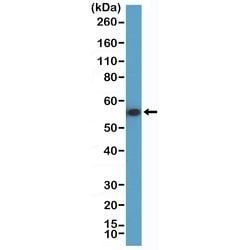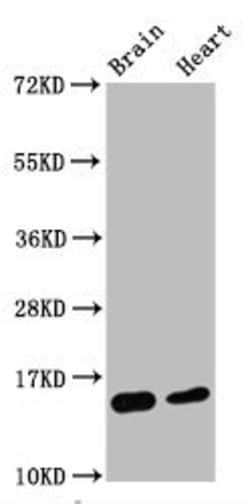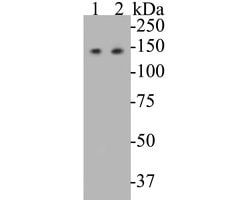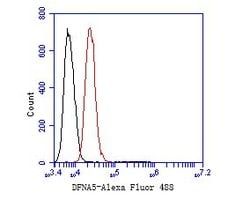Cytokeratin 7 Recombinant Rabbit Monoclonal Antibody (RM416), Invitrogen™
Manufacturer: Thermo Scientific
Select a Size
| Pack Size | SKU | Availability | Price |
|---|---|---|---|
| Each of 1 | PIMA536076-Each-of-1 | In Stock | ₹ 44,455.50 |
PIMA536076 - Each of 1
In Stock
Quantity
1
Base Price: ₹ 44,455.50
GST (18%): ₹ 8,001.99
Total Price: ₹ 52,457.49
Antigen
Cytokeratin 7
Classification
Monoclonal
Concentration
0.05 mg/mL
Formulation
PBS with 1% BSA, 50% glycerol and 0.09% sodium azide
Gene Accession No.
P08729
Gene Symbols
KRT7
Immunogen
A peptide corresponding to the C-terminus of human Cytokeratin-7
Quantity
100 μL
Primary or Secondary
Primary
Target Species
Human
Product Type
Antibody
Isotype
IgG
Applications
Immunohistochemistry (Paraffin), Western Blot
Clone
RM416
Conjugate
Unconjugated
Gene
KRT7
Gene Alias
CK7; CK-7; Cytokeratin 7; cytokeratin-7; D15Wsu77e; K2C7; K7; Kb7; keratin 7; keratin 7, type II; keratin associated protein 7.1; keratin complex 2, basic, gene 7; keratin, 55K type II cytoskeletal; keratin, simple epithelial type I, K7; keratin, type II cytoskeletal 7; Keratin-7; keratin-associated protein 7-1; keratin-associated protein 7-1-like protein; Krt2-7; KRT7; krt7 {ECO:0000250; LOC100755511; LOC100861181; NACHT, LRR and PYD domains-containing protein 3; sarcolectin; SCL; si:ch73-233m11.1; si:ch73-233m11.2; similar to keratin 7; type II keratin Kb7; type II mesothelial keratin K7; type-II keratin Kb7; UniProtKB:P08729}
Host Species
Rabbit
Purification Method
Protein A
Regulatory Status
RUO
Gene ID (Entrez)
3855
Content And Storage
-20°C
Form
Liquid
Description
- Cytokeratin 7 blocks interferon-dependent interphase and stimulates DNA synthesis in cells
- Involved in the translational regulation of the human papillomavirus type 16 E7 mRNA (HPV16 E7).



